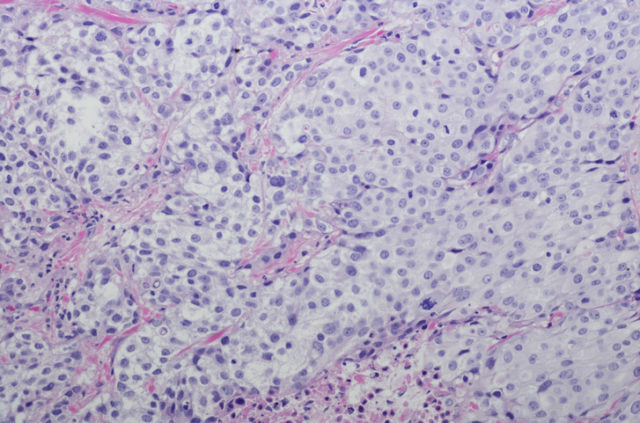
Roche drug Tecentriq has become a blockbuster product with approvals spanning several types of cancer. Bladder cancer will no longer be one of them. The pharma giant is pulling the product from the U.S. in that indication after it failed a study needed to retain its approval status.
In a statement issued Tuesday, Roche said the withdrawal is voluntary and was done in consultation with the FDA. The move comes amid an FDA crackdown on drugs that received accelerated approval. This pathway allows a drug to reach the market quickly based on less evidence than is typically required for a standard review. It’s reserved for drugs that address a serious or unmet medical need. But drugs awarded accelerated approval still must confirm safety and efficacy through a post-marketing study.
Tecentriq is an antibody designed to block PD-L1, a so-called checkpoint protein found on cancer cells that keeps immune cells from recognizing and killing tumors. By binding to PD-L1, Tecentriq enables immune cells to carry out their tumor-killing work. The drug won an accelerated approval in 2017 for urothelial carcinoma, the most common type of bladder cancer. The decision, based on the results of a single-arm Phase 2 study, covered advanced disease in adults who are not eligible for cisplatin-containing chemotherapy or are not eligible for any platinum-based chemotherapy. Those patients must also have tumors that express PD-L1.
Tecentriq failed a Phase 3 study evaluating the immunotherapy, in combination with chemotherapy, as a first-line treatment for patients with advanced bladder cancer that had not been previously treated. This study, which was designated as the confirmatory study for the drug, did not meet the main goal of showing improvement in overall compared with chemotherapy alone. Roche said the data from this study will be presented at a future medical meeting. Trial results were published in 2020 in The Lancet.
Roche said it will work with the FDA over the coming weeks to complete the withdrawal process and notify U.S. clinicians. The company added that patients in the U.S. currently receiving Tecentriq for previously untreated metastatic urothelial carcinoma should discuss their care with their physicians. The decision to pull Tecentriq from the U.S. market does not affect the other FDA-approved indications for the drug , which include treating cancers of the lung, breast, liver, and skin.
FDA scrutiny on drugs that fail their confirmatory studies has led several companies to voluntarily withdraw products in the indications for which they won accelerated approvals. AstraZeneca pulled Imfinzi from the U.S. market in bladder cancer last year following that drug’s Phase 3 failure. Merck’s Keytruda got the hook in metastatic small cell lung cancer after meeting only one of the two main goals of its confirmatory study. And last week, GSK said it would pull multiple myeloma drug Blenrep from the U.S. after that cancer drug failed its confirmatory Phase 3 test.
Urothelial carcinoma was Tecentriq’s first FDA approval. In 2016, the drug became the first checkpoint inhibitor approved for this type of bladder cancer, a decision that covered the treatment of patients whose disease worsens during or after receiving platinum-based chemotherapy. At the time of that regulatory decision, the confirmatory Phase 3 test was already underway. But in 2017, the drug failed that test. Though the FDA later said the confirmatory study for the 2017 accelerated approval could also be the confirmatory study for the 2016 decision, Roche said last year it would withdraw Tecentriq as a second-line bladder cancer treatment due to the emergence of new treatment options for patients.
“While we are disappointed with this withdrawal, we understand the need to uphold the principles of the US FDA’s Accelerated Approval Program, which brings innovative medicines to patients sooner,” Levi Garraway, Roche chief medical officer and head of global product development said in a prepared statement. “We remain confident in the benefit Tecentriq offers to people diagnosed with some of the most difficult-to-treat forms of cancer.”
Image by Getty Images








